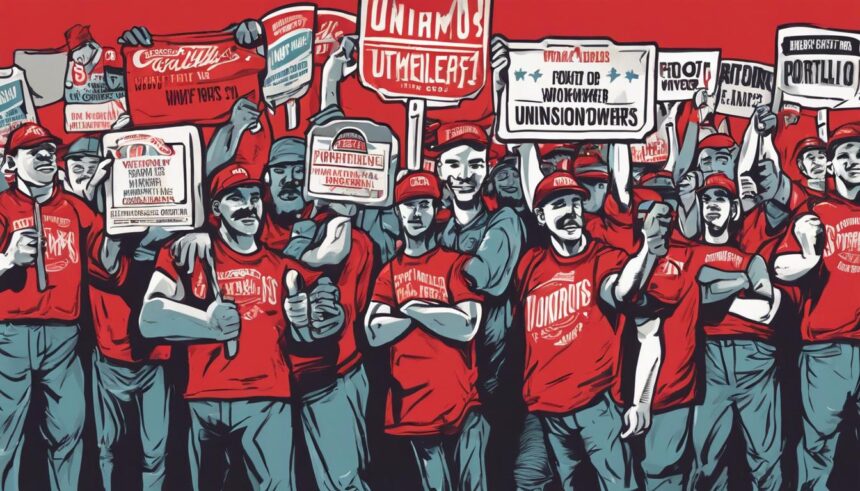Employees at Portillo’s food production warehouses in Illinois are making strides towards unionization, with the Iron Workers Union’s support, amid growing concerns over workers’ rights and collective bargaining.
In a significant gesture of solidarity and strength, employees at two Portillo’s food production warehouses in Illinois have taken a bold step towards unionization, underlining a growing movement within the service and food production sectors. The Iron Workers Union is backing the workers at these facilities in Aurora and Addison, propelling a critical narrative about workers’ rights and collective bargaining in the United States.
Portillo’s, a popular restaurant chain known for its Chicago-style hot dogs, Italian beef sandwiches, and other regional favorites, has found itself at the center of this burgeoning labor movement. The workers at the Aurora warehouse, motivated by their counterparts in Addison, have formally demanded that Portillo’s recognize their right to unionize. A petition with this demand has been presented to the company, alongside a filing with the National Labor Relations Board (NLRB) seeking an official election for representation by the Ironworkers Union.
Moreover, employees at the Addison warehouse aren’t backing down either. They reasserted their stance by submitting a petition that reiterates their demand for the company to cease delays and commence negotiations for a fair contract. This collective effort mirrors a broader wave of unionization efforts across various industries aiming to improve working conditions, wages, and job security.
The context behind this unfolding saga began a year prior when Portillo’s food production warehouse workers in Addison took to the polls, resulting in an overwhelming vote in favor of representation by Iron Workers Local 853. However, their journey has been anything but smooth. Portillo’s response to this has been marred by objections and appeals deemed baseless by the NLRB, which found the company’s actions without merit not once, but twice. Despite these rulings, Portillo’s has been accused of stalling, frustrating workers’ push towards a fair and recognized union representation.
The Iron Workers Union, backing the Portillo’s employees, boasts a membership of 130,000 ironworkers across North America. Their work spans various sectors, including construction on bridges, structural steel works, architectural projects, and more, making their support for the Portillo’s workers a significant endorsement of the broader labor movement.
This unfolding scenario at Portillo’s underscores a pivotal moment in the intersection of labor rights and the food production industry. It also illustrates the challenges workers face in their quest for fair treatment and the lengths to which companies will go in their efforts to impede unionization. This development is not just about Portillo’s but reflects a wider, dynamic conversation about workers’ rights, the power of collective bargaining, and the role of unions in modern America.
As the situation evolves, all eyes are on Portillo’s management to see how they respond to the demands of their employees. The actions taken here could set a precedent for other workers in similar industries considering the path of unionization. It is a crucial time for labor rights in the United States, and the outcomes here could have far-reaching implications for workers and companies alike.





